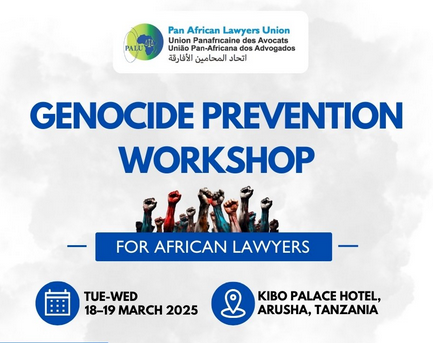The Legacy of Black Genocide in America
- Linda Zheng
- Feb 28, 2022
- 4 min read
By Linda Zheng

Throughout American history, Native Americans and Black Americans have been systematically persecuted and oppressed by the U.S. government. While it is widely recognized that the U.S. government perpetrated genocide against Native Americans, it is still heavily debated whether genocide was perpetrated against Black Americans. The most significant campaign to ever raise this issue to an international stage occurred in 1951 when the Civil Rights Congress (CRC) presented a historic petition, “We Charge Genocide,” to the United Nations (U.N.). In the decades since the petition was published, the connection it made between structural racism and genocide continues to influence genocide scholars and Black activists around the world.
CRC’s petition was historic in that it set the U.S. government’s policies, which segregated, discriminated, and perpetrated violence against Black Americans, within the international framework of genocide. Prior to “We Charge Genocide,” there had been two former petitions submitted to the U.N. in hopes of raising international awareness for Black Americans. The first group to petition the U.N. was the National Negro Congress (NCC) which delivered a petition on racial discrimination to the U.N. Secretary-General in 1946. Just a year later in 1947, the National Association for the Advancement of Colored People (NAACP) submitted their own petition to the U.N., a 100-page document borne out of frustration of the U.S. government’s lacklustre racial reforms.
“We Charge Genocide,” was even more ambitious than its predecessors in that it openly accused the U.S. government of the crime of genocide. The petition outlined conditions in the U.S. that amounted to a pattern of genocidal acts against Black Americans, hundreds of cases of executions and lynchings, and thousands of undocumented cases. At the time the nearly 240-page petition was submitted to the U.N., the word “genocide” was still a relatively new term that people attributed to Nazi atrocities and the Holocaust. The petition was largely ignored by mainstream media in the U.S. or simply regarded as Cold War propaganda, but was well received in Europe and elsewhere where few had been aware of the dire conditions Black Americans lived in. It is credited today for associating the term ‘genocide’ with the plight of Black Americans.
The petition’s influence waned with the disbanding of the CRC in 1956 but was picked up later during the Civil Rights Movement by Malcolm X and the Black Panther Party and republished in 1970. Malcolm X was interested in raising the issues Black Americans faced domestically to an international stage saying, “the day the black man turns from civil rights to human rights, he will take his case into the halls of the United Nations.” Before Malcolm X could pursue his ideas further, he was assassinated on February 21, 1965. Throughout the 1990s, claims of genocide against Black Americans have renewed again as Black communities across the U.S. faced the disproportionate impacts of the crack cocaine and HIV/AIDS epidemics. In 1996, the National Black United Front (NBUF) petitioned the U.N. and accused the U.S. government of genocide, highlighting the serious repercussions the War on Drugs campaign was having on millions of incarcerated Black and Latino men.
While the genocide of Black Americans has never been officially recognized by the U.S. government or the U.N., many of the claims made in “We Charge Genocide” have stood the test of time. Black Americans continue to face inequities in housing, education, health care, maternal care, employment, politics, environmental justice, and more. Mass incarceration and the criminal justice system has robbed generations of Black families of husbands and fathers and prevented Black men from voting and participating in politics. In 2020, massive protests swept across the U.S. over the killing of George Floyd and the police brutality of Black Americans. These protests highlighted the lasting impacts of systemic racism in the U.S. and finally raised the issue to an international stage.
After more than half a century of advocacy, the plight of Black Americans was finally recognized by the U.N. In June 2021, the U.N. High Commissioner for Human Rights released a historic report outlining the socioeconomic inequalities Black people faced in the U.S. and other countries around the world. Following the groundbreaking report, a landmark resolution was adopted by the U.N. Human Rights Council to form an independent expert mechanism to investigate systemic racism worldwide, particularly as it related to law enforcement. After the U.N. resolution was adopted, the Biden Administration pledged to cooperate with the new mechanism.
While the genocide debate has not yet been resolved, its legacy continues to influence discussions around systemic racism in the U.S. and abroad. The champions of “We Charge Genocide” faced significant difficulties in the U.S. for having published the petition but in doing so, exposed people around the world to systemic inequalities that existed in the U.S. Without these early forms of activism that attempted to situate systemic racism of Black Americans as a matter of international affairs, there may not be official reports and resolutions today validating their struggle.
Linda Zheng is an Alliance Coordinator and Communications Director at Genocide Watch
The views and opinions expressed are those of the authors and do not necessarily reflect the official policy or position of Genocide Watch.
.png)







Comments